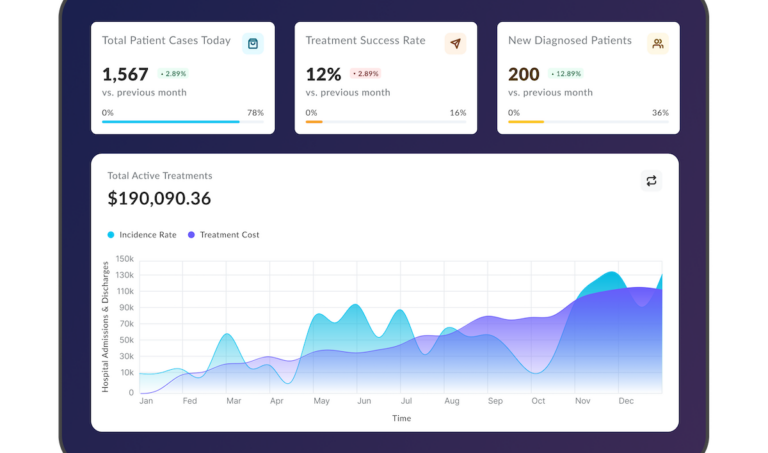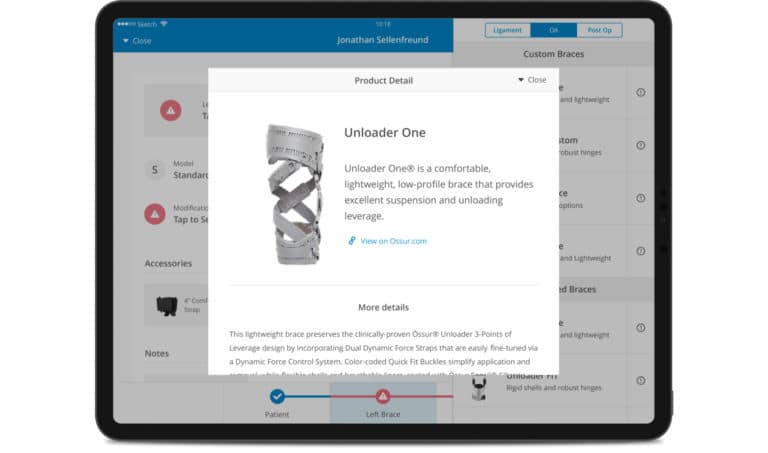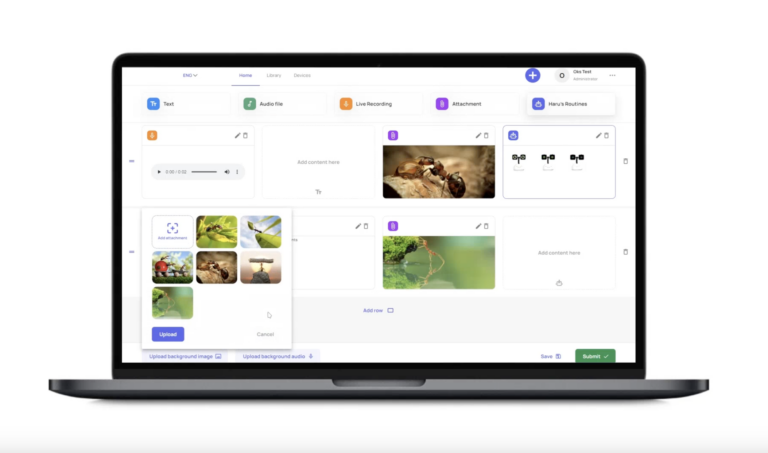Building an Employer Brand in Tech: Your 2025 Guide
Updated: September 4, 2024
Today, 86% of HR professionals report that recruitment is becoming more like marketing, and employer branding is now important more than ever. Did you know that 50% of job candidates refuse to work for a company with a bad reputation, even if there is a pay increase?
Employer branding for tech companies is the secret to attracting the best talents from your industry. About 92% of employees would consider switching companies if offered a role in an organization that has a stellar corporate reputation.

We provide companies with senior tech talent and product development expertise to build world-class software. Let's talk about how we can help you.
Contact us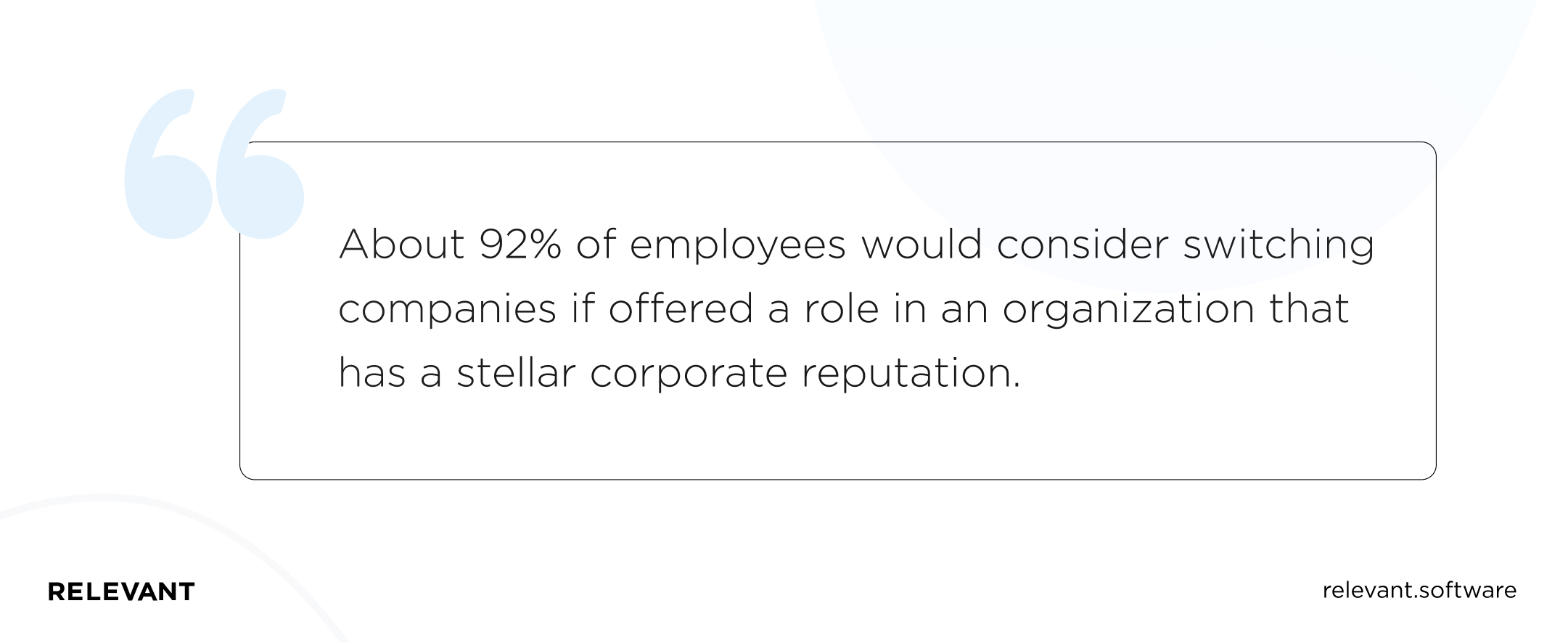
While most big enterprises lean on competitive benefits, small to mid-sized companies cannot afford to do so. However, there’s still more they can do without breaking the bank. This article explores employer branding in-depth to help you build a dedicated development team and do it right the first time.
Table of Contents
What is employer branding for tech companies?
Employer branding describes the activities a company carries out to position itself as an employer of choice. It includes its values, employee experience, and communication to potential hires. That said, why is employer branding important to your organization?
In the wake of the pandemic, the need to establish a powerful brand became more critical than ever. As more companies adapt to remote working and rapid technology adoption, the tech talent market has become highly competitive. According to CodinGame’s latest survey, 64% of companies are looking to hire more developers. This growing demand coupled with existing skill gaps has created a massive talent shortage in specific IT areas.
As others scramble to fill in-demand roles, a key factor that will determine whether you come out at the top of this race is effective employer branding. Employer branding is a tactic that many great brands embrace. It helps position a company as a top choice for qualified candidates. However, building your brand is an ongoing, long-term activity that may generate results later on. Therefore, getting started now will help your company establish its reputation as a top place to work sooner rather than later.
How does a strong employer brand help grow your business?
Regardless of your actions or inactions towards attracting potential employees, your company already has a reputation. Actively maintaining a positive brand impacts not just your talent acquisition and retention process, but the overall success of your organization. The benefits of employer branding for tech companies are:
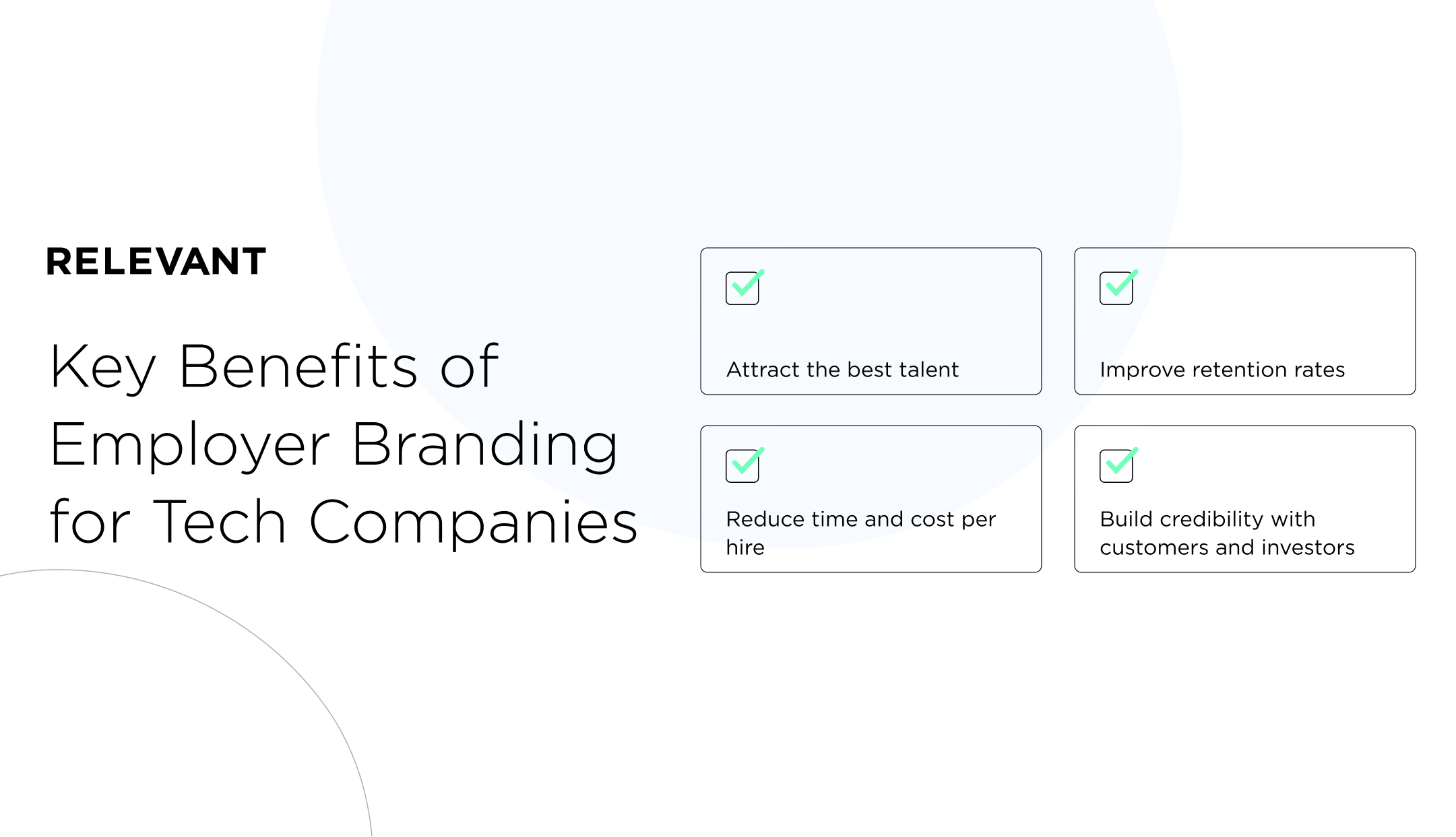
Attract the best talent
IT firms are at the center of the talent war. The shortage of skilled personnel has made it increasingly hard to fill new roles. While offering competitive salaries is a common way of pulling in top talents, employer branding is a better and more effective option.
In the CodinGame survey we mentioned earlier, developers identified doing challenging tasks and a healthy work-life balance as the top deal-breakers when considering a job over remuneration. They also prioritize company culture and values. This shows that nurturing your workplace reputation can help you attract skilled job seekers and professionals engaged in other companies. Rather than bringing them in, they’ll seek you out.
Reduce time and cost per hire
Companies that invest in employer branding can reduce their cost per hire by up to 50%. The reason being, as an entrepreneur, your promises and reputation are your selling point. When you adopt employer branding, current employees will spread the word across the talent pool. They’ll be more inclined to recommend your company to friends, colleagues, and other developers. This lowers the cost of creating awareness for openings and that of recruiting unqualified candidates.
Not just in saving hiring costs, positive branding can also speed up your recruitment process. With a pipeline of potential hires, you can focus on closing candidates for harder-to-fill roles; rather than finding them.
Improve retention rates
Attracting top talents means nothing if you lose them to your competitors. Your company policies, procedures, and culture shape the employee experience, which in turn; influences your reputation. Therefore, investing in employer branding can help you improve employee engagement and loyalty while reducing the turnover rate.
On the other hand, strong branding also ensures you hire not just the best; but the right fit. This means recruiting candidates whose goals align with your company values and objectives from the get-go.
Build credibility with customers and investors
Your reputation as a place of work can break or make the confidence of stakeholders. All it takes is one scandal from your employees to change your customers’ and investors’ perception towards your business. This could mean a loss of business and goodwill that may take years to restore. As a result, having a brand that’s responsive to the needs of both customers and employees contributes to your business growth.
In addition, your ability to engage and retain the right talents could influence customer experience. Having a competent team that can deliver on your project requirements could raise customer satisfaction and drive revenue.
More information: How to find and hire software development teams.
4 examples of a compelling employer branding strategy in tech
Several tech companies are reinventing better ways to manage their workplace reputation. Here are some employer branding examples to inspire your campaigns:
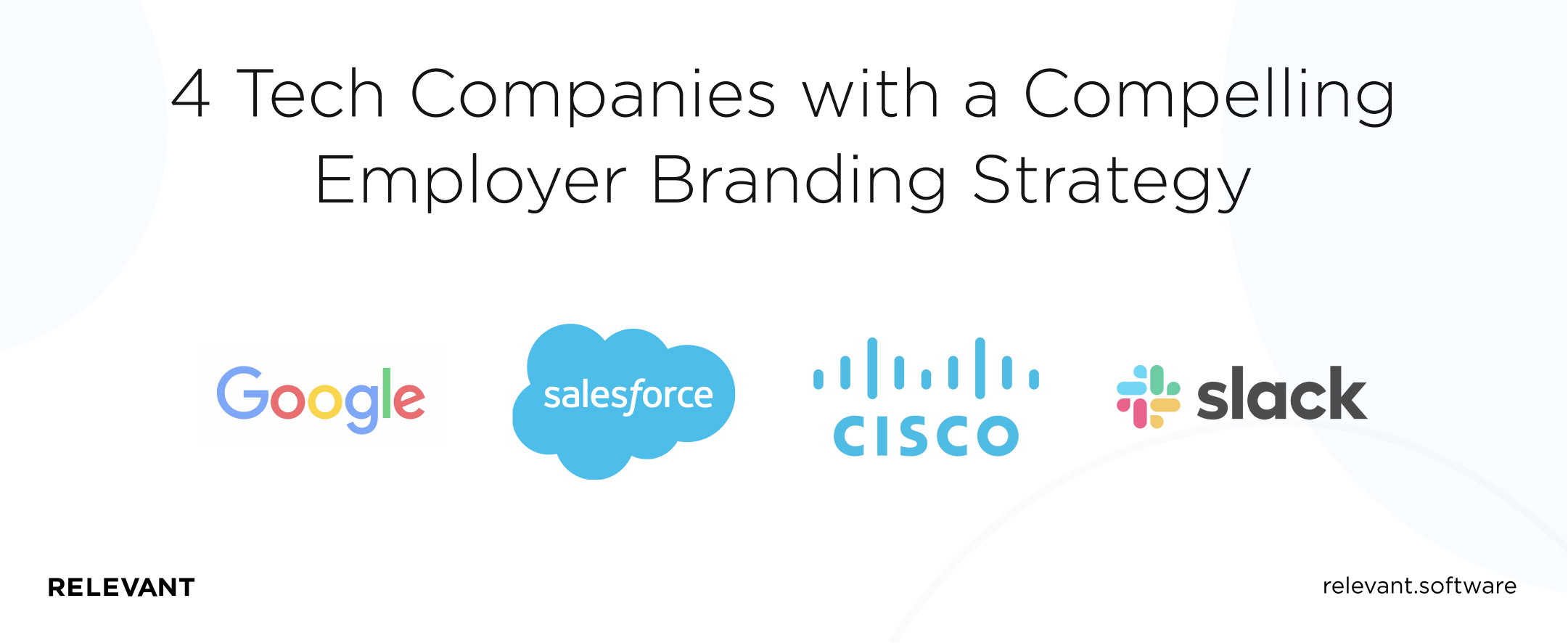
1. Google
Renowned as one of the most desirable workplaces, Google’s employer branding has been nothing short of remarkable. The tech giant receives over 3 million applications yearly, of which it only accepts about 7000. However, it’s not just the high salaries, benefits, and free food that attract candidates, there’s more.
For one, Google’s culture supports collaboration, open communication, and innovation. Often referred to as Googlers, employees are encouraged to voice their opinions whether they’re interns or full-time staff. They can share ideas, coach each other, and receive recognition for their innovative ideas and solutions. With facilities such as game rooms, micro-kitchens, and nap-pods, workers have access to a friendly workspace where they enjoy working.
Google’s people operations team uses surveys and studies to understand the needs of employees and tailors them to the company’s culture. An example of their responsiveness was how they adopted remote working faster than other big brands at the height of the pandemic.
The company has also invested in campaigns to shape the perception of potential candidates. One of its best employer branding campaigns is titled Google’s intern’s first week. The video, which was released years ago, gives people a glimpse into the unique experience of each intern at the company. Currently, there are countless YouTube videos of new hires recounting their typical day at work. These branding efforts have helped Google position itself as a top choice for the brightest talents.
How can you use this idea?
Innovation is at the core of your success as a tech company. Just like Google, you can create an environment that supports innovative ideas. Encourage collaboration and idea-sharing so your employees can benefit from each other’s knowledge. Values that are contrary to these activities should have no place in your culture.
If you’re managing distributed teams, set up adequate communication channels. Host Q&A sessions, periodic meetings, and non-work-related conversations to build camaraderie. For teams that work from the office, improving the physical workspace can boost their productivity. Encourage employees to share authentic reviews on their work experiences with your company. This could serve as testimonials on third-party review sites like Glassdoor or video clips that can be shared across your social media platforms.
2. Salesforce
Another tech branding inspiration is Salesforce. Although it is popular among customers, for many job seekers, it’s also an employer of choice. For the past 13 years, the company has been listed on the FORTUNE 100 Best Companies To Work For; and on the Best Workplaces in Technology for the fifth year. The company has built a reputation over the years as being vested in the welfare of its people.
Salesforce’s team and customers are called Ohana, which is the Hawaiian word for family. This concept is based on support and teamwork. They not only work together, but also learn and have fun together through periodic reunions. In action, the Ohana philosophy has helped the tech company build an inclusive community for its employees. The concept also spreads to external stakeholders, especially local communities, through Salesforce’s distinctive social responsibility model.
The company’s people-first culture does not merely exist on paper. It is powered by leaders and then flows to employees. Salesforce CEO, Marc Benioff, paves the way for exemplary leadership. As a strong advocate of pay equality, he has dedicated $6 million towards closing the pay gap by gender, race, and ethnicity. In several ways, he has championed other causes that are dear to his employees, making Salesforce’s employer branding one of the best in the world.
How can you use this idea?
Establishing a people-centric culture is not enough. As a leader, embodying these values can lead to greater transformation in your organization. The culture must be a living, breathing principle pioneered by top management.
Create a sense of community within your company, and set up inclusive policies tailored towards the needs of your team. Plan reunions, events, and training that encourage employees to work, learn, and play together. If your team is spread across different countries, organize virtual get-togethers and fun sessions.
Read more: Everything you need to know on how to hire remote developers.
3. Cisco
Cisco’s employer branding takes on a different approach from other IT companies. It centers on trust. Their talent brand team understands the value of authenticity. As a result, they encourage employees to tell real stories of how it is to work at Cisco.
From the career page, prospective employees have access to valuable resources that shape their perceptions. Visitors can view Cisco’s culture, Glassdoor reviews and ratings, employer awards, work benefits, and openings right from that page. The most remarkable feature is the employee stories. In the videos and linked social posts, Cisco’s workers share their experiences and what they love so far. In the blog section, these stories tagged Life at Cisco are more in-depth, engaging, and relatable.
On the social media pages, their work-life content is 100% employee-generated. Their workers share day-in-the-life pictures, tweets, and videos using the hashtag #WeAreCisco. Cisco’s media team makes a conscious effort to comment, like, and reshare these posts in the appropriate channels. With these materials, potential hires can see an unfiltered, real-life view of Cisco’s culture, values, and interactions with their workforce.
How can you use this idea?
Effective employer branding works from the inside out. As a result, candidates will always rely on the word of your workers to make decisions about your brand. With this in mind, allow your employees to speak up. Empower them with the resources they need to tell their stories. Amplify this content across your social media channels and encourage them to engage.
People can sense a staged act from a mile away. Making up fictional stories will damage your brand. Keep it real and avoid exerting any influence on what your employees will share. If you do not trust them enough to share a positive experience, you might need to re-evaluate your culture.
4. Slack
As a brand that facilitates collaboration among teams and individuals, it’s no surprise that Slack’s employer branding and recruitment process is inspiring. Their foremost and game-changing workplace campaign was an office tour with TechCrunch Cribs. The popular series showcased Slack’s headquarters and how employees spend their day. The video gives potential employees a sneak peek of the work environment and fun facts on how the company arranges team spaces. Over the years, Slack has shared pictures of their cozy workspaces designed in line with their values of empathy, playfulness, craftsmanship, and solidarity.
Unlike most organizations, Slack has a transparent recruitment process. They have a detailed blog post on what it entails to land an engineering job with them. It includes what they look for in candidates, the interview process, their technical stack, and how to apply for a job.
Slack also promotes a culture that supports giving back to the community. Employees have a three-day paid volunteer time off to serve their local communities. In addition, the company launched a program that helps formerly incarcerated people find skilled tech work.
In light of the pandemic, they not only adopted remote working but are also looking towards substituting full-time office work with a sustainable framework. With these initiatives, there’s no doubt Slack is one of the best tech companies to work for.
How can you use this idea?
A third party’s perspective on your physical workspace can help validate your claims. Reach out to influential industry figures that would be interested in collaborating with you. If you are unable to find one, sharing behind-the-scenes clips on your channels would be beneficial as well.
One of the essences of employer branding is building credibility. Just like Slack, establish trust in the minds of candidates by living up to your values. Start initiatives and processes that align with your culture and brand promises.
Building a strong employer brand in the tech industry
Establishing your company as a top choice for highly skilled workers is your best chance of winning the tech talent war. But taking this step requires a defined approach that will give you an advantage over other companies. We have highlighted 7 tips that will help you build your reputation as a great brand to work with.
- Improve employee experience
How you interact with employees from the get-go directly influences their perception of the company. The better their experience, the higher their chances of remaining in your organization and recommending you to other developers, analysts, and IT specialists. Therefore fostering a positive experience is highly beneficial to your tech employer brand.
You can start by creating an effective onboarding experience that helps your teams excel in their roles. Engage them to understand their concerns and build better relationships. Provide adequate support for their physical and mental health, especially during this crisis. When you make intentional efforts towards improving employee experience, you have more engaged workers and fewer turnovers. And above all, you’ll have brand advocates. - Offer learning opportunities
In a fast-paced industry like Tech, adopting a learning culture is necessary. According to the Stack Overflow Developer Survey, nearly 59% of developers cite the opportunity to learn new technologies as a key factor to consider when job hunting. Encouraging your employees to develop their skills is a win-win situation for your company as it helps the brand attract more talent and keep them engaged – even with lower wages. Also, workers will become valuable assets, delivering high-quality work and better results. - Share your story
Employer branding thrives on storytelling. It revolves around marketing your brand in a unique, authentic way. As a result, sharing your story as much as possible can put you one step forward. Encourage your employees to share stories about your brand. Behind-the-scenes videos, employee testimonials, new-hire videos, and day-in-the-life content are all good ways to shape the perception of candidates. Showcase your brand on your website and social media to highlight the experience of working at the company. - Monitor reviews
86% of employees and job seekers research company reviews before applying for jobs. Although the chances of consistently getting positive reviews might be low, your response matters a lot. Watch out for what past and current employees or even former candidates are saying about your company. Take time to respond to both the positives and the negatives. To nip unfavorable reviews and ratings before they damage your reputation, conduct exit interviews to understand what you’re doing wrong or right and adjust accordingly. - Align your employer brand with your company’s mission
Your mission is a starting point for excellent employer branding. It can help you understand the skill sets you need to achieve your goals and the values that will drive the process. Any disconnection between the two can affect your reputation and your overall success. That said, focus on your mission, vision, and culture, and then use them as a guide. - Build a tech employer branding strategy
Does your strategy set you apart as a desirable workplace for tech talents? If the answer is no, you might want to rethink it. Keep an eye on industry news and trends. Understand the ever-changing expectations of in-demand specialists. Set inclusive policies that match the needs of the industry. Find out the biggest obstacle to your hiring process and make conscious efforts to turn it into your strength. - Involve marketers
Whether or not you establish a strong brand depends on how well you market your company to candidates. In the past, this function was primarily for the HR department. However, with the competition in the job market, combining the efforts of the HR, marketing team as well as brand marketers can give you more chances of success. These experts understand how to develop a brand image that speaks to your dream candidates.
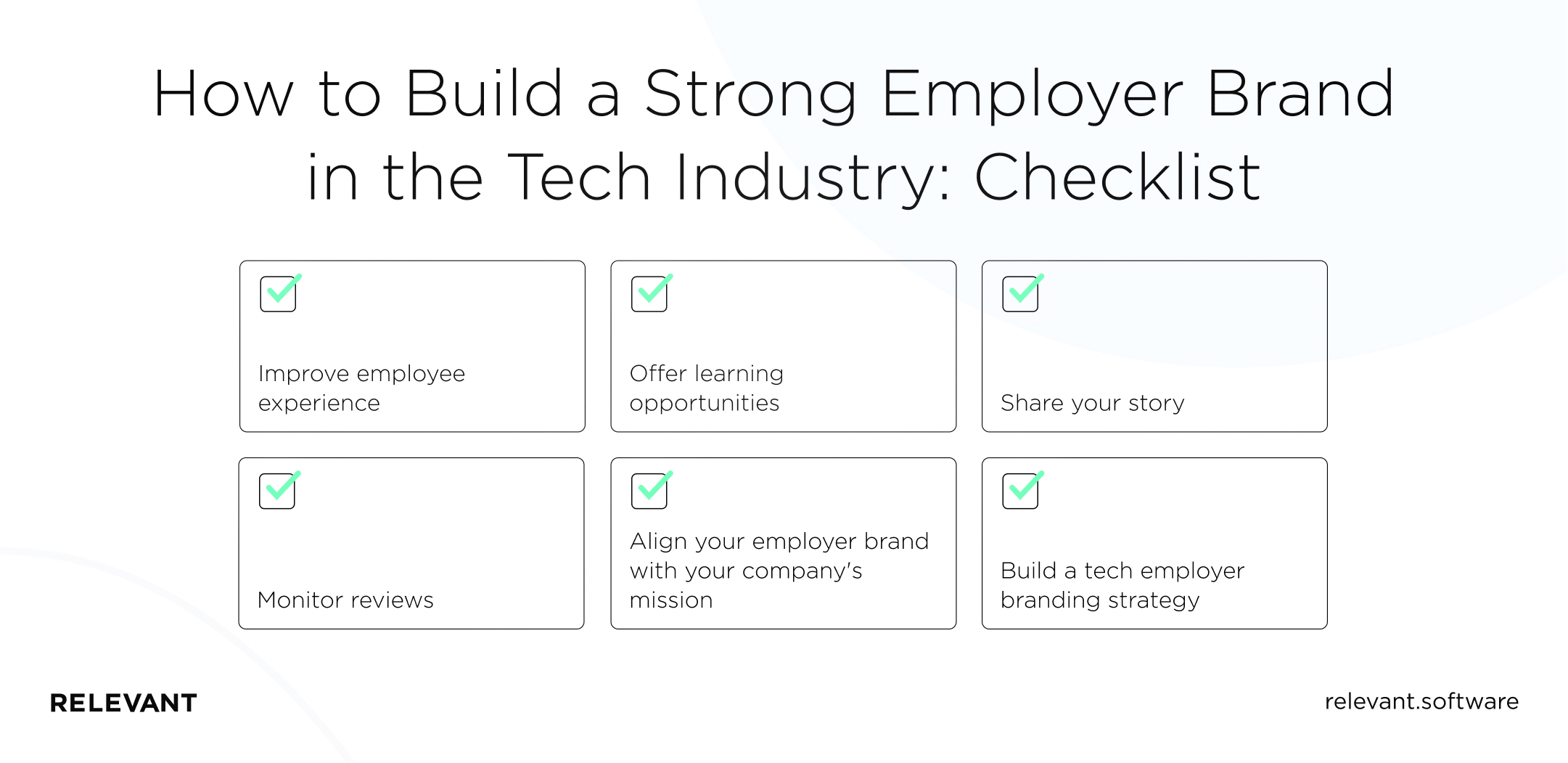
Summary
Employer branding for tech companies has become an unbeatable advantage that’ll help them win super developers, analysts, and other in-demand workers. However, it’s a long-term process that requires dedicating your time, attention, and tools.
For starters, setting up measures that are responsive to the expectations and wellbeing of your employees can set you apart from other companies. At present, with the global pandemic, working arrangements, work practices, and your reputation as an employer are being put to the test. How your company treats its employees now will have a long-lasting impact on your ability to engage and retain qualified candidates later on.
If you don’t have adequate internal resources, we can assist you. Relevant works hand-in-hand with your IT company to improve their employer branding process and ensure you attract not just the best talent but the perfect fit.
We can also help you hire skilled and experienced developers and other tech talents you need. Contact us today to learn more about our terms and processes.
FAQs
Our core services:
Do you want a price estimate for your project?
Do you know that we helped 200+ companies build web/mobile apps and scale dev teams?
Let's talk about your engineering needs.
Write to us